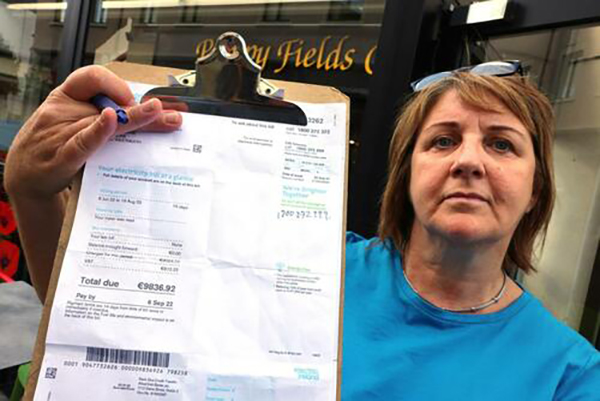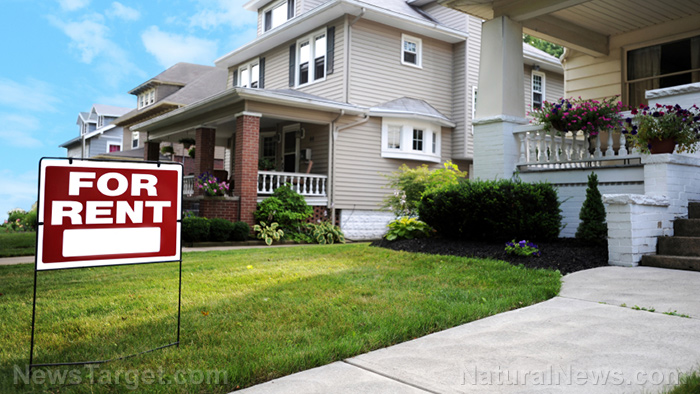Home sellers reduce prices as housing market cools off
06/02/2022 / By Kevin Hughes

Many home sellers are cutting their prices as the housing market finally cools off following a scorching pandemic run.
Nearly one in five sellers reduced prices during the four week period that ended May 22, real estate brokerage Redfin Corp. said in a report. That represents the highest rate of home sellers reducing their prices since October 2019.
Other indicators of how hot the market is have also plateaued, such as a house’s time on market and the percentage of homes selling above listing price.
Consumers are now fighting with some of the highest mortgage charges in years, in spite of the drop in those numbers in the previous two weeks. Higher rates, combined with economic uncertainties, are bringing up questions about whether the U.S. housing boom has reached its limit.
“The picture of a softening housing market is becoming more clear, especially for home sellers who are increasingly turning to price drops as buyers become more cost-conscious under higher mortgage rates,” Redfin’s chief economist Daryl Fairweather said.
New home sales in April plunged from the previous month, dropping 16.6 percent to a seasonally modified annual rate of 591,000. The number was much lower than what forecasters had anticipated, showing that the housing market is declining quicker than many might have expected.
According to a report issued by the National Association of Realtors on May 27, existing-home sales decreased by 2.4 percent in April to a seasonally modified annual rate of 5.61 million.
One factor that could avoid demand from falling further is the decreasing mortgage rates.

Freddie Mac reported that U.S. mortgage rates have had their largest weekly decline since April 2020, going down from 5.25 percent to 5.10 percent. (Related: Homebuyer activity in the US falters as mortgage rates spike)
“For now, mortgage rates have stabilized, and I expect prices to do the same. This will remove some uncertainty for buyers. That means that as long as a home is priced conservatively, it still has a good chance of selling quickly,” said Fairweather.
Mortgage rates were at stunning lows for months as the Federal Reserve kept its interest rate target at near-zero levels, fueling the hot run of the housing market.
But the Fed raised its interest rate target by a quarter of a percentage point in March and afterward boosted rates by a half percentage point earlier this month, causing rates to rise swiftly.
Metropolitan areas see largest percentage of price reductions
Meanwhile, metropolitan areas that saw a recent rush of incoming residents are among the markets with the largest percentage of price reductions in the previous month.
Boise, Idaho, which saw a 62 percent rise in housing costs over two years, led the U.S. in share of price drops in April, with 41 percent of its sellers reducing asking prices. Other popular cities for relocation also saw more than 20 percent of sellers reducing their prices.
“When mortgage rates were at or below three percent, both local and out-of-town home buyers were more willing and able to tolerate high prices, but at five percent, many are now priced out. Freddie Mac’s benchmark 30-year interest rate has jumped almost two percentage points since the end of 2021 and currently averages 5.1 percent,” Fairweather said.
Checking in at second place behind Boise was Cape Coral, Florida, where 33 percent of property sellers reduced prices. Completing the top five were New Orleans at 32 percent, Baton Rouge, Louisiana with 31 percent and Sacramento, California at 30 percent.
Redfin said that despite signs that the housing market looks to be nearing the end of its extended improvement, costs still stayed high in the four-week period from mid-April to mid-May compared to the previous year. The median home sale price entered at $400,000, 16 percent higher on a year-over-year basis, while the median asking price also rose 17.8 percent to a record $418,000.
Together with Redfin’s research, data from numerous other organizations also hint the combined powers of large costs and soaring interest rates have left a clear mark in home-buying demand.
The Mortgage Bankers Association (MBA) said that the purchase originations are down by over 16 percent year-over-year, just about its level in early 2020. The MBA has lowered its forecast for 2022 purchase originations. According to the National Association of Realtors, pending sales dropped in April for a sixth consecutive month.
Watch the video below to know why a lot of homes are going into foreclosure.
More related stories:
Want a better deal on buying a house? Find a physically unattractive real estate agent.
Here it comes: All signs point to Housing Bubble 2.0 amid widening price, income gap.
Collapse incoming: Fed to raise interest rates more than the market initially anticipated.
Sources include:
Submit a correction >>
Tagged Under:
Bubble, Collapse, debt collapse, Federal Reserve, home buying, home sellers, housing boom, Housing Market, market crash, Mortgage Bankers Association, mortgage rates, National Association of Realtors, Redfin, risk
This article may contain statements that reflect the opinion of the author
RECENT NEWS & ARTICLES
COPYRIGHT © 2017 COLLAPSE.NEWS
All content posted on this site is protected under Free Speech. Collapse.news is not responsible for content written by contributing authors. The information on this site is provided for educational and entertainment purposes only. It is not intended as a substitute for professional advice of any kind. Collapse.news assumes no responsibility for the use or misuse of this material. All trademarks, registered trademarks and service marks mentioned on this site are the property of their respective owners.





















